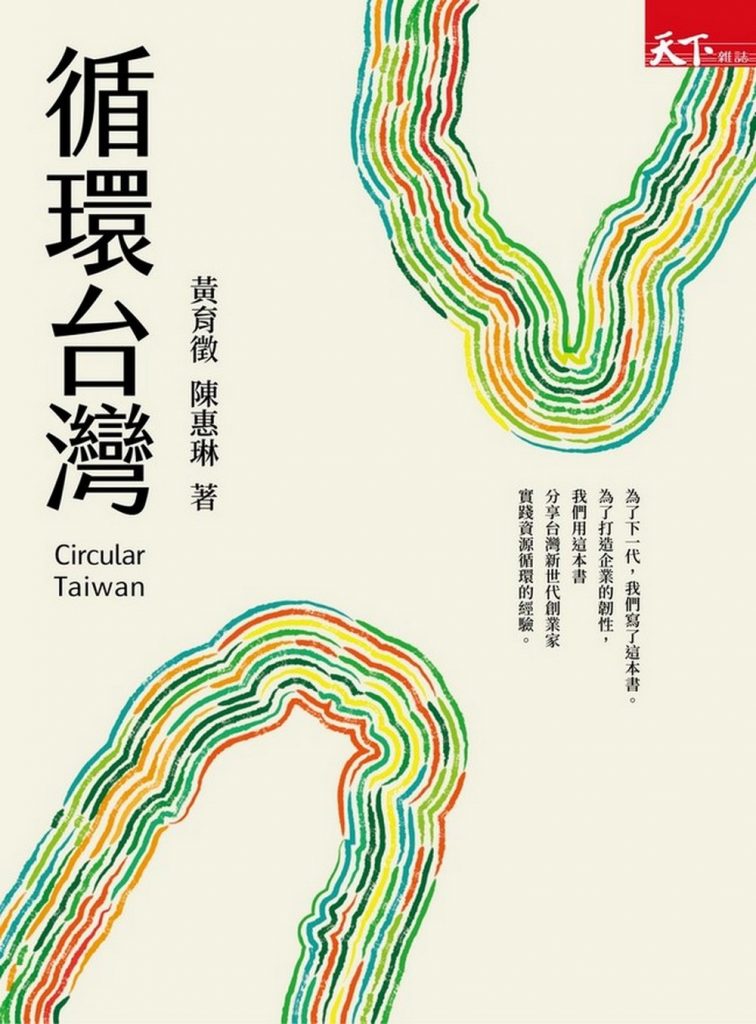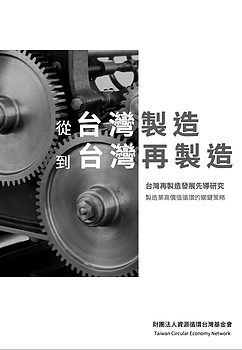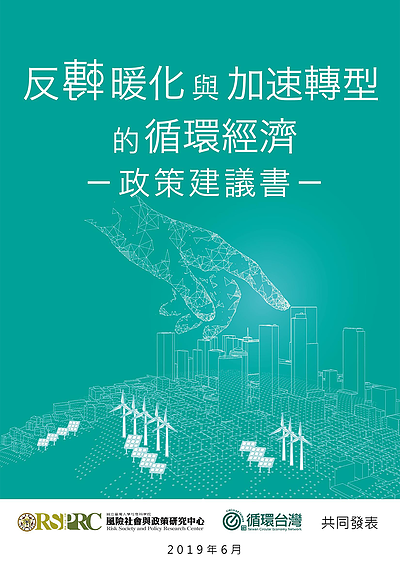Break Free of Taiwan’s Resource Deficiency Obstacle
Taiwan depends heavily on imports - ninety percent of Taiwan’s energy, fertilizers, and feed are imported, as well as over sixty percent of its food. The large amounts of energy and raw materials imported over the past 50 years were processed by Taiwan’s industrial sector for export, and the waste generated from the manufacturing process was disposed of without any real consideration for the environment. Consequently, Taiwan is now caught in a struggle between growing its economy and protecting natural resources.
Yet through a circular economy, Taiwan can grow its economy without depleting earth’s precious resources. Circular economy is a development model that imitates nature’s circular ecosystem. It can encourage new economic activities and industries, foster local employment, support the ecosystem and bolster energy independence. Just like nature, Taiwan can continue to grow while recycling and reusing waste, and achieve a zero-waste, zero-pollution economy that is continuous and at peace with the environment.
New Opportunities for Industries, Communities, Cities and Countries
Industries - Reignite the Engine
This book explains how businesses can profit under the circular economy model. Through specific case studies, it shows how enterprises that were pioneers in using the circular economy business model were able to break through the economic development vs. environmental sustainability conundrum and still generate hundreds of billions in revenue. Under the new circular economy, businesses will no longer be seen as operating against society’s faith and values. In fact, businesses will be on the front line of this new industrial revolution. They will incorporate the new values of “collaboration, sharing, and symbiosis” while maximizing profits. Whether it’s food, clothing, housing, or transportation, new possibilities and opportunities can be found through the circular economy mindset.
Communities - Industrial Symbiosis
What would it look like if nature was to design an industrial park? If biological nutrients can circulate back and forth in ecological systems, then “industrial nutrients” should replicate nature’s works in the technical cycles and circulate repeatedly without waste. This is the concept behind “Industrial Symbiosis,” and the book provides examples such as the Kawasaki Industrial Zone (Japan), BASF (Germany), and The Planet (Chicago) to explain how it is carried out in actual practice.
Cities and Countries - Formulation and Implementation of New Strategies
As circular economy emphasizes systematic planning, a stronger collaboration between industry and agriculture should be implemented during the redesigning of the economic model, so that more resources could stay in the circular system. This could solve a lot of the societal and environmental concerns caused by economic growth. The book shares in detail many examples from countries in the European Union, such as the Netherlands, Scotland, and Denmark, on how they established their goals, identified opportunities, and took action.
Circular Economy in Taiwan - What Will We Leave Future Generations after Twenty Years?
The new battle for our generation is to normalize circular economic thoughts and build a circular Taiwan free of waste and pollution. On the road to reform, no one is a bystander: industry, government, academia, media and social activists are all key stakeholders. The book not only offers four action plans that could help to implement a circular economy, but it also specifies the four main criteria that are necessary to successfully achieve a circular Taiwan.
About the Author
Charles Huang is the founder of Circular Taiwan Network (CTN). Since the establishment of Circular Taiwan Network, Mr. Huang has continued to research and understand the nuances and trends of circular economy models with his CTN colleagues. Through numerous exchanges and collaboration with circular economy pioneers around the world, Mr. Huang sees the challenges, but also the hopes and promises. "Circular Economy" was born out of the wish to systematically document these experiences.



